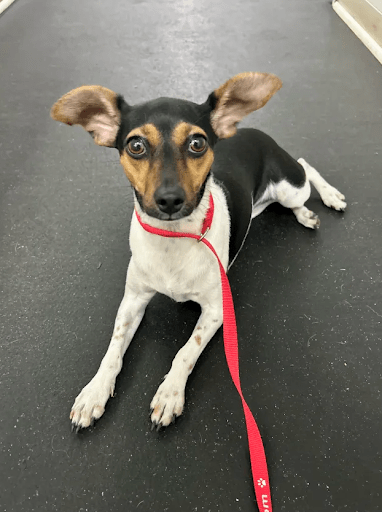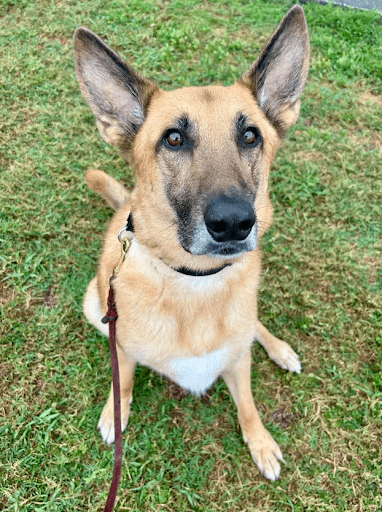Training
What to Do When Your Rescue Dog Won't Listen
Adopting a rescue dog is a journey that fills your heart with joy, but it’s also one that can test your patience. One of the most common challenges dog owners face is getting their rescue dogs to listen and respond to commands. It’s easy to feel like you’re speaking in a language your dog doesn’t understand—whether you’re trying to teach basic obedience or curb unwanted behaviors.
At K9s Place, we recognize that rescue dogs often come with baggage from their past experiences. Whether it’s past trauma, inconsistent training, or a lack of structure, these factors can make it harder for them to learn and connect with you. But don’t worry—through the right approach, a bit of patience, and consistent guidance, your rescue dog can learn to listen and become the well-behaved companion you’ve always dreamed of. If your dog isn’t listening, we’re here to help. At K9s Place, we specialize in training rescue dogs to become more responsive and well-behaved. Let’s work together to improve your dog’s behavior—get in touch with us today.
Schedule your e-collar training evaluation

Let’s Help Your Rescue Dog Go From Overwhelmed To Obedient—Start With Training That Actually Speaks Their Language.
Behind Every Bark Is a Story Worth Knowing
It’s important to understand the root causes of why your rescue dog may be struggling to listen. Rescue dogs come from varied backgrounds—some may have spent time on the streets, others might have been in shelters, and some may have had difficult past experiences with previous owners. All of this can affect their ability to focus and learn.
Emotional Trauma and Anxiety
Many rescue dogs suffer from anxiety, fear, and emotional trauma. These emotional states can make it difficult for them to concentrate on commands or training sessions. A dog who is stressed or fearful may not be able to pay attention to you, even if you’re offering rewards. They may also act out, bark excessively, or display other unwanted behaviors.
Lack of Consistent Training
If your rescue dog hasn’t had consistent training in their previous home, they may not know what’s expected of them. They might not understand basic commands or know how to communicate properly with humans. In these cases, your dog may respond to your efforts to communicate with confusion or frustration.
Limited Socialization
Rescue dogs often haven’t been properly socialized. This can affect their ability to interact with new people, other dogs, and their environment. Lack of socialization can make your dog fearful, reactive, or overly excitable, which in turn can impact their ability to listen and follow commands.
Understanding these challenges is the first step in training your rescue dog. Once you know where they’re coming from, you can approach the training process with empathy, patience, and the right methods.
Speak So Your Dog Understands You
Structured commands are essential for teaching your dog how to listen. Structured commands provide clear, consistent expectations that help your dog understand what’s
required of them.
The Importance of Consistency
Consistency is key when it comes to training your rescue dog. Dogs thrive on routine, and they need to hear the same commands in the same tone and context every time. If you’re inconsistent with your commands or allow your dog to get away with certain behaviors, they will become confused and may stop listening altogether.
How to Use Structured Commands
- Keep Commands Short and Clear: Dogs respond better to short, clear commands. For example, use “sit” instead of “please sit down.” The shorter and more direct the command, the easier it will be for your dog to understand and respond.
- Use a Calm, Firm Tone: Your tone of voice is important when giving commands. Speak clearly and calmly but firmly. Avoid using a high-pitched or excited tone, as this can confuse your dog and make it harder for them to focus.
- Be Patient and Consistent: It’s important to give your dog plenty of time to process the command and respond. If your dog doesn’t listen immediately, be patient. Don’t repeat the command too quickly, as this can create confusion. Give your dog a few moments to understand, and then reward them once they comply.
- Avoid Overwhelming Your Dog: Especially for rescue dogs who are still adjusting to their new environment, keep training sessions short and positive. Overwhelming your dog with too many commands or expectations can make it harder for them to listen. Gradually increase the difficulty of the commands as your dog becomes more comfortable.

Where Patience and Expertise Come Together
At K9s Place in Brevard County, we specialize in training rescue dogs and helping owners build strong, healthy relationships with their pets. Our experienced trainers understand the unique needs of rescue dogs and tailor our training programs to suit each dog’s specific background, personality, and challenges.
Personalized Training Plans
We know that every dog is different, and we take the time to develop a personalized training plan for each rescue dog we work with. Whether your dog is struggling with basic commands, barking, jumping, or more complex behavioral issues, we create a plan that addresses your dog’s specific needs.
Structured Sessions for Consistency
We provide structured, consistent training sessions that build gradually over time. We work with you and your dog to establish a routine that reinforces good behavior and teaches your dog how to respond to commands reliably.
Support Every Step of the Way
We understand that training a rescue dog can be a journey, and we’re here to guide you every step of the way. Our team offers ongoing support, advice, and troubleshooting for any challenges you encounter during the training process. Start your dog’s next chapter with calm, structure, and a training plan that actually sticks—because at K9s Place, we believe even the most uncertain rescue deserves to feel understood, supported, and safe.
Experience, Compassion, and Lasting Results
K9s Place isn’t just another dog training facility—we’re a dedicated team of professionals passionate about helping rescue dogs and their owners. Our training programs are designed with empathy and patience to help dogs overcome behavioral challenges and become confident, well-behaved companions.
- Our Experience with Rescue Dogs
- We have years of experience working with rescue dogs and understand the unique challenges they face. Our training techniques are specifically designed to address the emotional, physical, and mental needs of rescue dogs.
- We Provide Ongoing Support
- We don’t just train your dog and send you on your way—we provide ongoing support to ensure that you and your dog continue to thrive. From follow-up sessions to troubleshooting, we’re here to help you build a lasting bond with your dog.
- Customized Solutions
- No two dogs are the same, and neither are their training needs. We tailor our approach to suit the individual needs of your dog, ensuring that you receive the most effective training possible.
Ready to Help Your Rescue Dog Listen?
Helping your rescue dog learn to listen isn’t just about obedience—it’s about building a life together rooted in mutual trust, patience, and understanding. These dogs may come with baggage, but they also come with enormous potential. At K9s Place, we believe in nurturing that potential with training methods that are as compassionate as they are effective. Whether your dog struggles with basic commands or just doesn’t know how to tune in yet, we’re here to help you uncover what’s possible when communication finally clicks.
Let’s turn the frustration into freedom—for you and your dog. Connect with K9s Place and discover how personalized, rescue-focused training can transform your everyday routine into something calmer, kinder, and full of progress.

